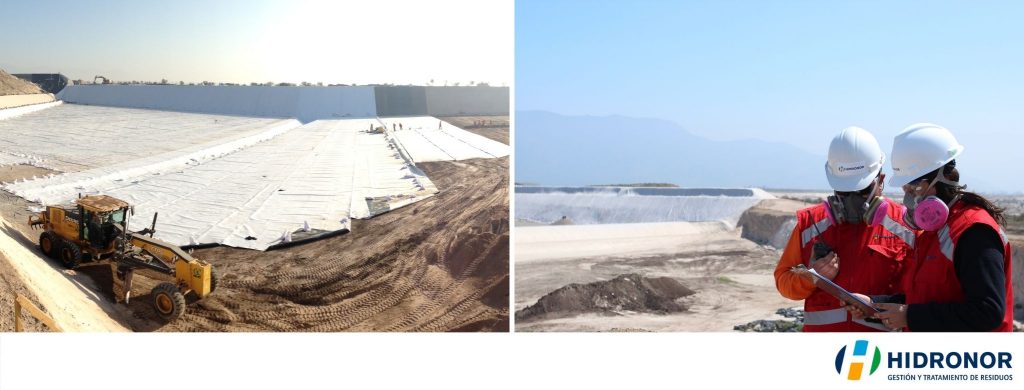Building security deposits for hazardous industrial waste and offering this service to the industry with full commitment and legal support is not an easy task. In the hands of those who do it is the responsibility of ensuring the containment of substances potentially dangerous to human health and the environment, and it is here that Hidronor has demonstrated development in terms of safety, specializing and building its warehouses for more than 20 years. .
The construction of these deposits requires of a special design and be supported by national legal regulations (legislation current DS 148) and international, ensuring that these are sufficiently safe to confine waste indefinitely and guarantee protection to the environment.
The company built its first security deposit for industrial and hazardous waste in 1997 in the Metropolitan Region of Santiago, commune of Pudahuel. Since then it has dedicated to specialization, studies and constant improvements for the rest of the deposits built at its facilities located in the Antofagasta region and Biobío, thus allowing full capacity to provide coverage to national level in the northern, central and southern areas of the country.
"At Hidronor we ensure that our services and the processes involved in each of them are aligned to achieve sustainable development that remains in constant innovation. This we allows us to offer comprehensive productive and sustainable solutions to our clients as a basis for caring for the environment and providing value in development of the industries ”highlighted José Aravena Villarreal, Deputy Manager of Projects of Hidronor.
The executive adds that for construction of each security deposit “we use a system of double waterproofing and drainage, leachate collection system and verifications with the highest international quality standards, allowing all waste to be completely, permanently and safely confined that enter this deposit ”.
With projects of this type, Hidronor is consolidates as the company with the most experience in Chile in the construction of security deposits for the final disposal of waste, without neglecting its commitment to the circular economy and the implementation of initiatives that they promote the revaluation and recycling of industrial waste.







